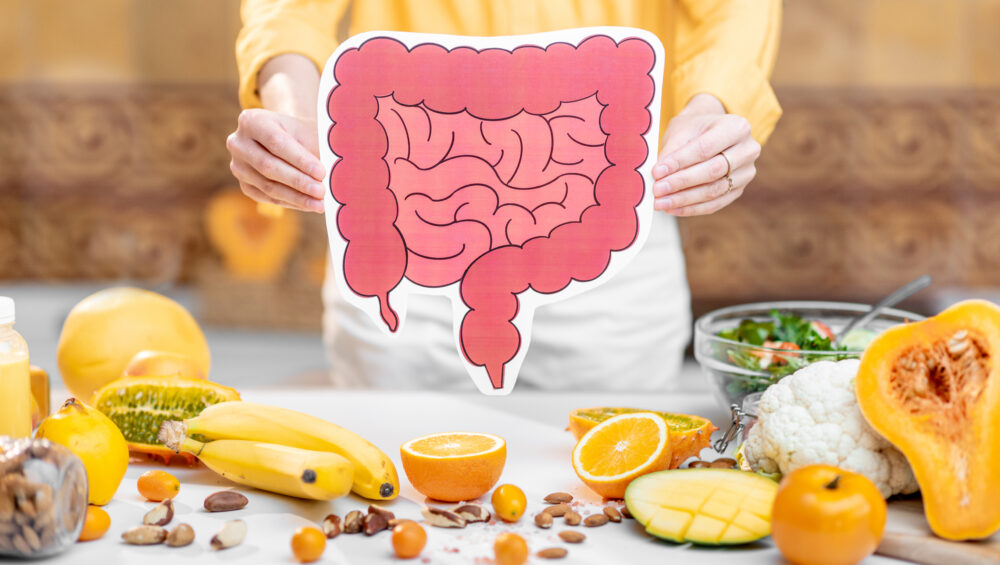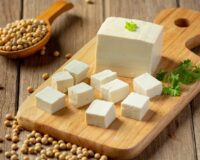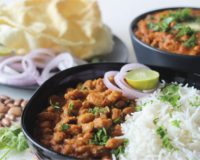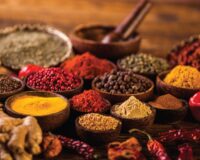The gut microbiome, which is collectively known as the body’s 40 trillion bacteria, is crucial for maintaining the overall health of your body because the bulk of these bacteria reside in your gut. Prebiotics (No, not probiotics), many of which are high in dietary fiber found in fruits, are crucial for feeding your healthy bacteria and the fiber will also improve your digestion ensuring proper intestinal balance. A diet for a healthy gut might vary depending on the individual, but it should always include a sufficient amount of fruits that are excellent for the digestive system.
Numerous elements, such as the food and beverages you consume, can accelerate the bad bacteria in your gut, and certain among these, particularly those present in your intestine, can contribute to a number of diseases. Microflora in the gut requires a steady environment to develop and thrive. To stop the formation of harmful bacteria, the colon needs to be somewhat acidic. Living a healthy and active life requires cultivating and maintaining the “good gut bacteria”. Therefore, it is necessary to ensure that our diet consists of good gut bacteria.
Fruits that are good for your gut health.
Include these fruits in your daily diet to keep your gut health happy and thriving!
- Banana
Bananas are the most popular and consumed fruit in the world. They have distinct shapes and firmness available in hundreds of different varieties across the world. Bananas are also considered to be the powerhouse of nutrients with dietary fiber which are known to have a positive effect on cardiovascular health, digestion, and weight control. There’s 15-25% of fiber in every 150 grams of banana. Their high content of pectin and soluble fiber helps in lowering body cholesterol and normalizes bowel movement.
Bananas are not only high in soluble fiber, but they also include a prebiotic substance (non-digestible fiber) that travels through the upper gastrointestinal system but does not get totally broken down, remaining undigested. Once they pass through the small intestine, they reach the colon where they’re fermented by the gut microflora. Bananas essentially help to keep the bacterial community’s microorganisms in harmony. Because of having less water content, bananas are also a great source of calories and have higher sugar content in combination with fiber.
- Pomegranates
The small pink seeds inside pomegranates are called arils, which are edible to eat. Despite being a labor-intensive fruit to eat, it has worth nutritional content with great fiber, vitamins, and minerals. Above all pomegranates are a good source of prebiotic fiber. The seed’s fiber acts as a prebiotic (food for probiotics, live bacteria that are beneficial to the gut) and provides the required bulk to maintain regular bowel movements and improve digestive health.
Pomegranate is a long-lived, drought-tolerant plant that is typically grown in the western regions of India. Pomegranates are considered to have a rich amount of antioxidants, antibacterial, anti-inflammatory, and anticarcinogenic activities. With fewer calories and more fiber and vitamins, pomegranates help to develop a better gut system, urinary health, and endurance to exercise.
- Apples
You might have this doctor saying “just eat one apple per day, everything’s gonna be fine”. It is indeed true that apples are a great source of antioxidants, vitamins, and minerals that keeps your body in optimal shape.
Pectin, a form of fiber that functions as a prebiotic, is found in apples. This implies that it nourishes the beneficial bacteria in your stomach, known as the gut microbiota. Your gut microbiota is crucial to your general health since it is involved in numerous processes that are related to both health and disease. Additionally, apples have both soluble and insoluble fiber, which may help control bowel motions.
Eating apples regularly improves your heart health and immune system to maintain a healthy body weight and it also prevents chronic diseases like type 2 diabetes. Also, the soluble prebiotic fiber found in pectin will nourish the good gut bacteria to make short-chain fatty acids (SCFA). These chemicals have an impact on the immune system, gut lining health, hunger, and weight gain. Pectin also improves your immune system and regulates constipation.
- Kiwis
Kiwis are fat-free, nutrition-rich source fruits that originated in China. Kiwi fiber is beneficial for eliminating toxins from the colon and binding them, helping to avoid colon cancer. There’s 21% fiber content in every 150 grams of kiwi fruit. The fact that the kiwi peel is edible is not widely recognized but in reality, the skin of kiwifruits contains fiber, vitamin E, and folate. Kiwi also contains high amounts of pectic polysaccharides and dietary fiber which are helpful for the immune system and balance constipation.
Your recommended daily allowance (RDA) for vitamin C is met by one cup of kiwi (273% RDV). One cup of sliced kiwi consists of more fiber than a bowl of bran flakes, two grams of protein, 110 calories, and half as much sugar as a cup of raw pineapple. This little fruit has prebiotic fibers that even increase the probiotic Bifidobacterium and Lactobacillus abundance which eventually improves the good bacteria count in your gut. It also has butyrate-producing Faecalibacterium that helps to protect the gut and maintain a healthy microbiome.
- Pineapples
Pineapple is a tropical and subtropical fruit largely grown in the central parts of India. The pineapple is essentially a collection of berries bound by a single stalk. The fruit is a powerhouse for your nutritional needs. Pineapples have a lot of fiber and water, which can help with digestion and prevent constipation. Bromelain, an enzyme found in pineapple juice, may help with digestion, protect against bacteria that cause diarrhea, and lessen inflammation in those with inflammatory bowel illnesses.
There’s 9% of fiber for every 150 grams of pineapple you eat and it is also rich in vitamin C. The fruit also consists of a potent enzyme called bromelain, which helps in lowering your cholesterol levels and maintaining a healthy heart. In addition to delivering vitamins, minerals, and other nutrients that facilitate digestion, pineapple helps the microbiome by dissolving food into its beneficial components. Pineapple is also a great fruit to have once in a while as it contains many disease-fighting antioxidants and improves your digestion.
Switching to a healthier Gut
Each fruit contains different types of fiber and antioxidants, and by eating a variety of fruits, you can ensure that you are getting a wide range of nutrients that can support your gut health. But as you are aware, since they travel great distances and spend days in marketplaces, fruits have been contaminated with preservatives and other chemicals over time by vendors and others to prolong their shelf life and improve their flavor.
These chemicals can interfere with gut health and cause a variety of health problems. So, it’s important to switch to pesticide-free fruits and vegetables.
Purity Prayag’s farm fresh fruits and vegetables are organically grown, with natural, time-tested, and chemical-free methods. The produce is sourced from farms and is sent directly to our stores, avoiding stockists and middlemen – ensuring a completely organic supply chain.
You can switch to a healthier gut by shopping at the 18+ stores spread across Hyderabad, Bangalore & Chennai. Follow your “gut instinct” and make the switch to 100% natural and organic products. It’s easier than you might think.






